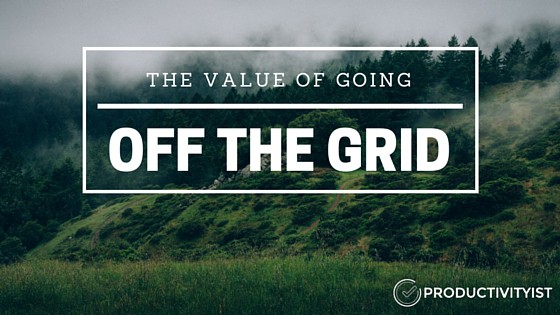This piece originally appeared in The Productivityist Weekly newsletter. My weekly email is now called ATTN: and I’d love to send it your way. Just click here to make that happen now or sign up using the form at the end of this piece. Thanks!
Let’s face it, we are being inundated with email, RSS feeds and many other types of information on a daily basis – it seems never ending. The web has opened up a floodgate of pertinent and trivial news stories that come at us from all angles. Memorandums and tasks arrive in our email inbox at breakneck speed and there is an endless stream of voice mails that begging for a response.
I’m feeling overwhelmed just writing about it.
All of this content can make a to do list end up being a “didn’t do” list. It’s not as if you’re able to write the tasks of the day off to reasons such as “had a ton of email” or “had a ton of phone calls to return.” Sure it would be nice if you could, but most offices don’t write days off due to information overload. You’ve got to cope with it all. Or do you?
I say shut it off. Shut it all off.
There’s no reason why you can’t go “off the grid” from time to time in order to boost productivity. There comes a time every day when you have to shut out the world in order to get things done. While I’m no expert at it – this article is almost a reminder for myself as well – I’d like to present a few elements on how to make it happen.
The only way you can go off the grid successfully is to prepare yourself accordingly. That means starting your day by going through your tasks and actionable items and making sure you can deal with the important and urgent ones that require being available.
Returning correspondence – even just to others know you’ll get back to them in a timely manner – is crucial. You don’t want to be caught off guard when you return from your self-imposed (and much needed) exile. When you place all of your ducks in a row, you will not only let others know that you’re working on something important, but you will free your mind. This allows you to put forth your best effort on the things you’re going to do.
Once you’re done preparing, you can go about removing yourself from everyone else’s equation. Let’s get started.
First, close your email. Seriously. Don’t open it until you’re ready to go back online. Then, turn the ringer on your phone off. If you only have a cell phone, turn it off altogether. Next, if you have a door to your office, close it. If you don’t, put headphones on. No music required.
There are other things you can do, such as actually listen to music through your headphones. I’d even suggest turning off your computer if it’s not needed. Just make sure you put yourself in the right state of mind and right environment to get done what you’ve set out to do. Then do it.
Once you’ve finished up the tasks you set out to do in “do not disturb” mode, now it’s a matter of getting back to the real world with email and all. The best way to keep your productivity levels up is to ease back in. I find that by doing this you’ll find it much easier to go offline in the future. In fact, if you do ease back into your normal routine, you’ll find that you can get more done when you’re online as a result.
Going off the grid allows me to be able to better prioritize my day when I went back to my online world. I have more focus and check my email far less often in order to maximize my time.
After all, email initially replaced the office memo so that you don’t (or shouldn’t) have to give a response instantly. Going off the grid will curtail your once insatiable need to reply to an email right away; you’ll temper your inbox-checking with more reasonable and rational uses of your time.
I challenge you to go off the grid for one hour this week. Take that hour and get something that is really important done. Then, up the ante to two hours. Then three. Ideally, you should be at a minimum of five hours a week where you are off the grid – that’s one hour per workweek. You’ll find yourself more focused, more relaxed and more aware of your priorities if you do.


